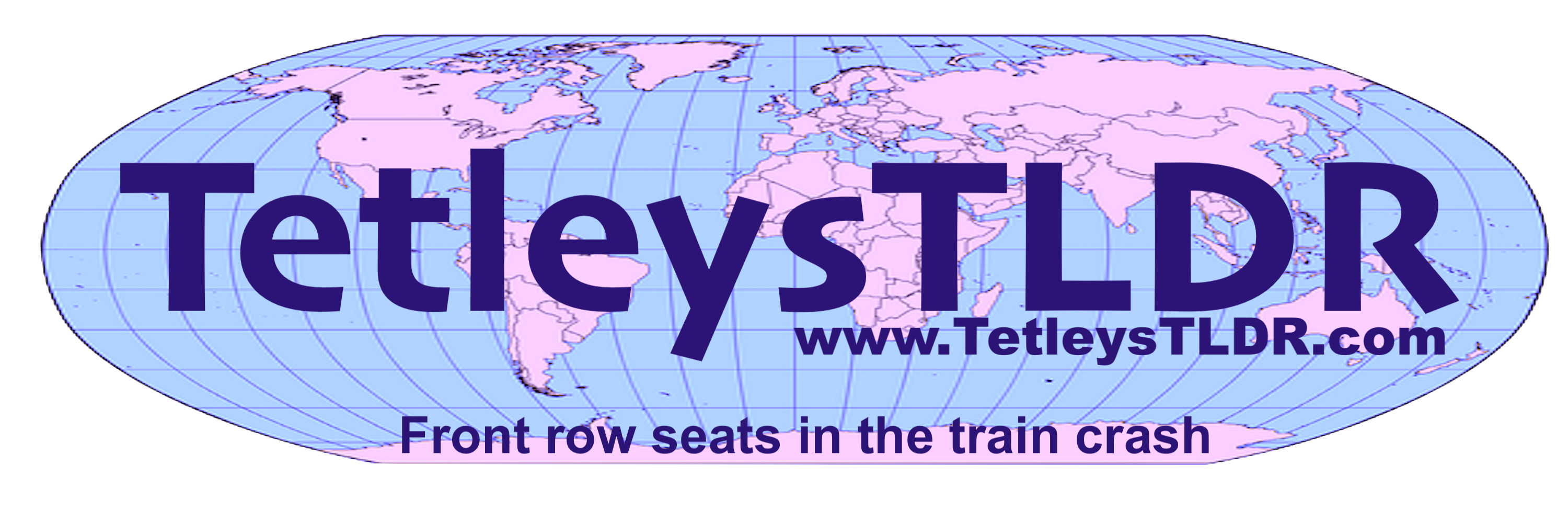Generation Z might just save the world but it's no thanks to us
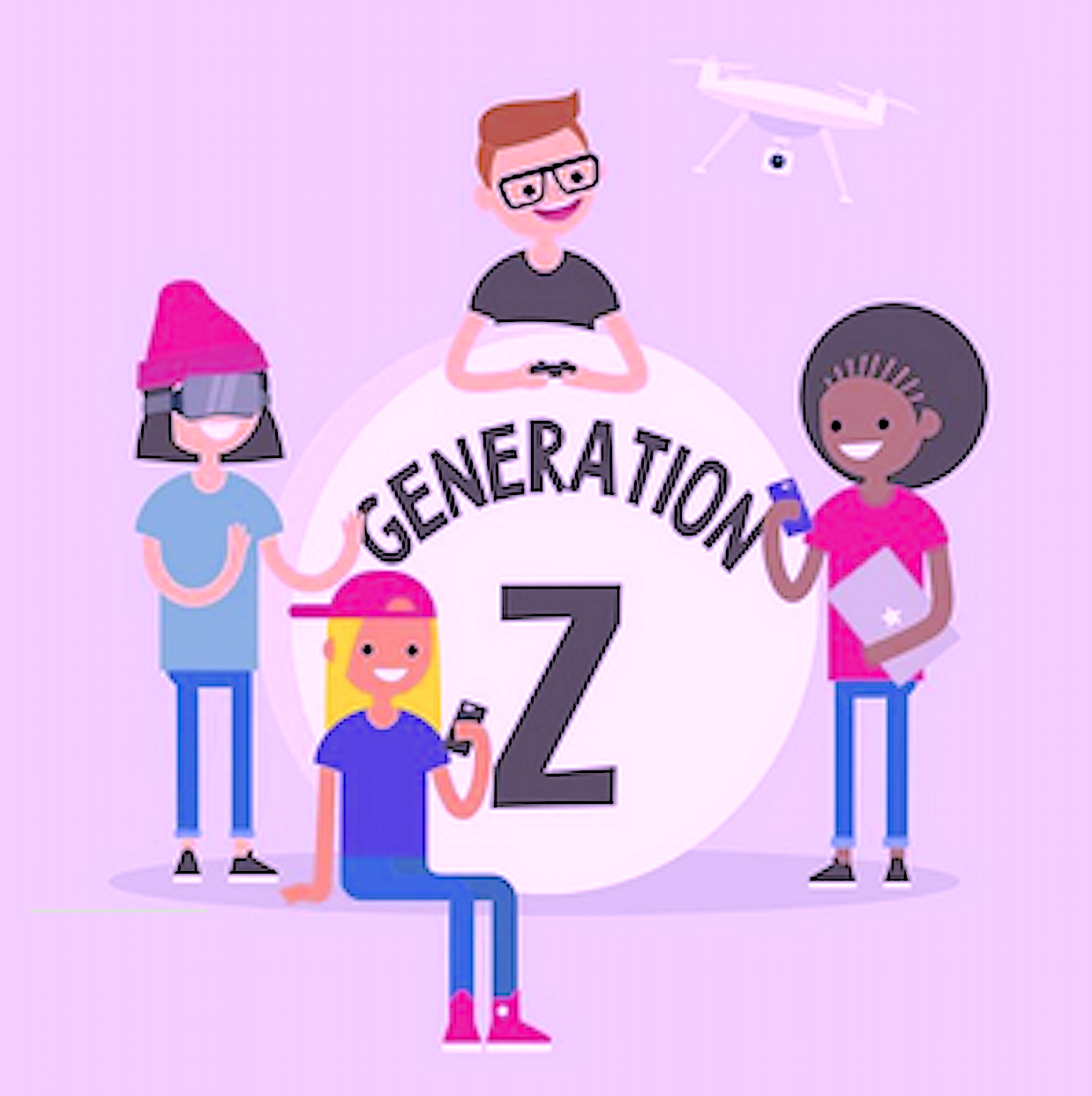
Even the most tone deaf of us can see the world is not in a good place.
Generation Alpha, the children being born now will have to change everything, but Generation Z are the pathfinders. The economic models we've taken for granted, culture and consumption, technology and power structures - they all need to go if there is any chance for future generations. It's an immense burden. But it's also a profound opportunity: to rebuild a future that works, not just for survival, but for thriving.
So we need to talk about Generation Z.
I've heard on discussions many times that 'The kids will save us'. This is more than wishful thinking, it’s also a confession. Because let’s be honest: what we’re really saying is, we’ve left them a mess, and now it’s their problem. Generation Z: those born from the mid-to-late 1990s through the early 2010s will step into adulthood with an inheritance that is a scorched landscape. A destabilised climate, unaffordable housing, broken political systems, and an economy that seems designed to exploit rather than uplift. And while many older voices scoff from the sidelines about laziness, cancel culture, or avocado toast, the truth is simpler: Generation Z didn’t break the world. They just grew up in the rubble. We were custodians of the world we gave to them, and quite frankly, we fucked it up.
The Boomers and Generation X have left a legacy which is shameful:
- A climate crisis spiralling toward irreversible damage, thanks to decades of fossil fuel lobbying, deregulation, and policy paralysis.
- A gig economy in place of stable careers, with zero benefits, only effort to get by.
- A housing market turned into a casino for the ultra-rich, pricing entire generations out of ownership.
- Skyrocketing student debt.
- Political systems riddled with populism, authoritarian flirtation, and billionaire influence.
- An economic system: capitalism - that prioritises profit over people, extraction over balance, and short-term gain over planetary survival.
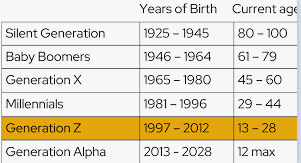
And through it all, many from the older generations have doubled down on a 'pull yourself up by your bootstraps' fantasy, ignoring the reality that the boots are now no longer waterproof, have holes in the soles and are unaffordable.
In response, Generation Z isn't retreating. They're reorganising. They’re leading climate strikes, unionising their workplaces, building alternative economies online, and demanding policies older generations wrote off as 'impossible' like wealth taxes, climate justice, and the end of capitalism itself.
Generation Z is redefining what work means. Quite frankly they're tired of the bullshit around work. They reject corporate exploitation and 9-to-5 rigidity, they're launching online cooperatives, monetising content creation, and turning passions into platforms. From TikTok creators to mutual aid organisers, they’re rejecting outdated models of success and building income streams that value autonomy and community. But it's not easy. Platform dependence is risky, burnout is rampant, and without safety nets, they're one algorithm change away from disaster.
While Generation X often internalised anti-union propaganda, Generation Z is reviving labour power. They're organising at Amazon, Starbucks, and Apple, using social media not just for selfies, but for solidarity. These are workers who understand that dignity isn't handed down from management, it's hard fought for and won through collective action. And many are starting to question the idea of wage labour altogether.
And then of course there's the legacy of the Planet.
https://www.ecomatcher.com/how-gen-z-is-setting-the-pace-for-climate-action/
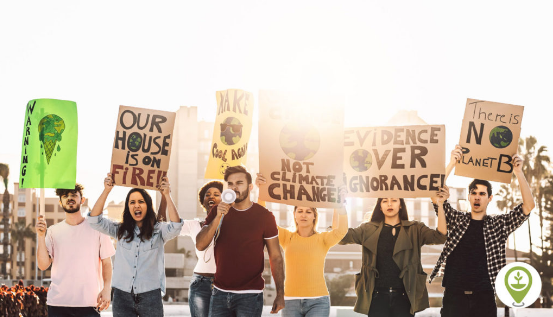
Let’s not mince words: global politics has utterly fucked over the young. What should have been a system for managing collective challenges has devolved into a theatre of short-termism, corporate capture, and nationalist posturing. Climate agreements get signed and ignored. Promises on housing, education, and healthcare are made and broken. Leaders show more urgency defending fossil fuel subsidies or tax shelters than protecting ecosystems or public goods. The result? A geopolitical clusterfuck where the consequences fall squarely on the shoulders of the next generation. Generation Z is inheriting a world governed by cynics, gamed by oligarchs, and devoid of the vision or willpower required to repair it. They have become the de facto cleanup crew for a crisis they didn’t cause, navigating broken systems that still pretend to function. Where older generations argued about whether climate change was real, Generation Z grew up watching the ocean rise and the sky burn. They aren't asking if we should act, they’re asking why the hell we didn’t decades ago. And they're pushing for real solutions: public ownership of energy, de-growth, and a fundamental shift away from carbon capitalism.
To truly escape the crisis of capitalism, they've recognised that we need more than reforms, we need a redefinition of value itself. Our current monetary system is rooted in artificial scarcity and debt. Money is created by private banks as interest-bearing loans, not tied to real resources or human need. That means the economy grows not by meeting needs, but by expanding debt and consumption, endlessly. A resource-based economy, as envisioned by thinkers like Jacque Fresco and others, flips this logic. Instead of using money to allocate access, we directly assess what resources are available, what people actually need, and work out how best to distribute and produce using sustainable methods. Decisions are made scientifically, not through markets warped by profit incentives. Automation, renewable energy, and open-source technologies could allow us to meet everyone’s needs without the rat race. In this system, work becomes optional and meaningful. Goods and services are shared or accessed based on use, not ownership. Hoarding is unnecessary when abundance is planned, not improvised. Generation Z: already skeptical of consumerism and ownership culture is uniquely positioned to explore and build the digital and physical infrastructure for such a shift. This isn’t utopia. It’s the next step in human evolution, a break from financialised survival that creates inequality and poverty, toward cooperative sustainability. Generation Z understands that we can’t tinker around the edges anymore. The system itself is the crisis. They support:
- A post-capitalist transition to a resource-based economy where production is based on needs, not profit.
- Universal Basic Income, not just as a safety net but as a right to exist with dignity in a post-scarcity world.
- Student debt forgiveness, so education isn’t a lifelong financial prison.
- Wealth taxes, because billionaires shouldn’t exist while people sleep in tents.
- Rent control and public housing, to end speculative hoarding and gentrification.
- Healthcare as a human right, not a business opportunity.
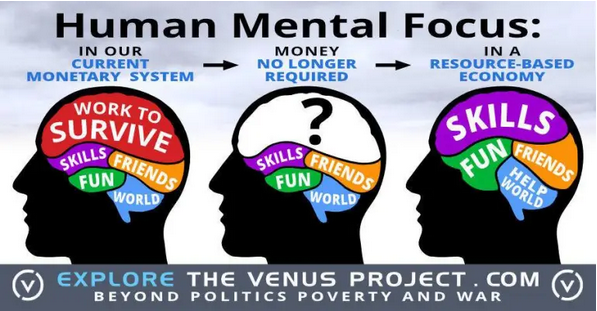
These aren’t fringe ideas anymore. They're growing and gaining momentum, and they’re a necessary steps towards survival.
Universal Basic Income (UBI) is often pitched as a safety net, but Generation Z sees it as more: a right to exist with dignity. In a world where automation replaces labour and productivity is sky-high, there’s no moral justification for poverty. UBI acknowledges that our worth isn’t measured by our job title or market output. It grants people time, security, and the freedom to pursue meaningful work, care, creativity, or rest, no strings attached. In any even it's a temporary meanure until money becomes obsolete.
Education was once a public good; now it’s a life sentence of debt. The student debt crisis is not a financial mistake, it’s a policy choice designed to extract wealth from the young. Forgiving this debt is not just compassionate, it’s rational. It liberates human potential, stimulates the economy, and affirms that knowledge should elevate, not imprison.
Billionaires shouldn’t exist: not when basic needs go unmet. Wealth taxes aren’t about envy, they’re about justice and balance. Generation Z knows that one person’s hoarded billions often come from underpaid labour, exploited land, or dodged taxes. Redistribution through taxation is a first step toward unwinding decades of concentrated power and economic apartheid.
Housing should be a right, not a commodity. Speculative buying and corporate landlords have turned homes into assets for the rich and traps for the rest. Rent control and robust public housing programs are necessary to restore housing as shelter, not profit. Generation Z sees the damage done by unchecked gentrification and demands a future where no one is priced out of their own neighbourhood.
In the US and increasingly in the UK as the NHS is eroded, to Generation Z, the idea that healthcare is tied to employment or income is barbaric. In the US they’ve grown up watching peers launch GoFundMes for insulin and chemo. In the UK, they've seen an evolving two tier healthcare system that fails both. They demand a system where care is guaranteed, not bought. A universal, publicly funded healthcare model isn’t radical, it’s humane, efficient, and seriously overdue.
Artificial Intelligence will define much of Generation Z’s world, but the question is on whose terms? In the hands of Big Tech and neoliberal governments, AI threatens to become a tool of surveillance, automation-for-profit, and workforce displacement. But it doesn’t have to be that way. Generation Z sees AI not as a magic bullet or an existential threat, but as a tool, like fire or electricity, to be governed ethically, openly, and democratically. When directed toward public good, AI can map climate resilience strategies, optimise transportation and eliminate drudge work. But for that to happen, it must be wrestled out of the hands of monopolies and programmed with values that centre equity, transparency, and sustainability. This generation has the digital fluency to demand that AI reflects human priorities, not shareholder ones. Tech should empower, not dominate. It should serve the people, not replace them.

So while many political and corporate leaders stall, Generation Z isn’t waiting. They’ve already produced iconic figures who embody a new moral clarity. Greta Thunberg, perhaps the most famous among them, has shown that a teenager with a sign and a spine can shame world leaders into attention, even if not always into action. Her Fridays for Future movement inspired millions globally, proving that youth aren’t just aware, they’re organised. But Greta is far from alone. Voices like Vanessa Nakate in Uganda, who spotlights the climate crisis’s disproportionate impact on the Global South, or Autumn Peltier, the Canadian Indigenous water protector, exemplify how Generation Z’s green leadership is also de-colonial, intersectional, and globally connected. They’re fighting not just for carbon cuts but for climate justice, linking ecological collapse with racial, economic, and gendered oppression. These pathfinders don’t ask for permission. They force accountability. They see through greenwashing and empty pledges. And crucially, they know that climate action must dismantle the systems that caused the crisis, not just paint them green.
As sobering as it may be, Generation X and Millennials represent the final stewards of the old world, a world built on industrial extraction, late-stage capitalism, and ecological denial. Climate change is not just a crisis; it is a civilisational boundary. The systems that once delivered growth now guarantee collapse. We cannot carry these frameworks into the future. Our economic model: competitive, carbon-intensive, and commodified is literally unsustainable. The day was always going to come when it would collapse. Our political systems, born of Cold War binaries and nationalist delusions, are outdated and obstructive. Even our cultural myths: like endless consumption and progress through profit have grown toxic. Generation Z doesn’t hasn't just inherited this reality. It has outgrown and rejected it. Their task is not to reform the old world but to replace it. And whether we like it or not, our generations, Generation X and the Millennials will be the last to live primarily in that pre-collapse world. That is our place in history: witnesses to the end of an age we refused to reckon with until it was too late.
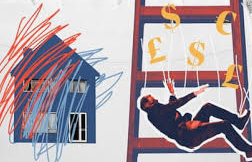
So it's clear that the future of Generation Z and those after them, capital and money will eventually need to be binned. This seems to us as we've only ever understood a world with money, but finance in its current guise has only really existed since the dawning of the industrial revolution. Needless to say those on the right and the monied classes hate this. Of course this will have to be a phased transition. No profound change can happen overnight. But that change will happen, with or without the consent of those that wrecked the planet in the first place.
The Right wing and the establishment, in its modern, neoliberal, nationalist form, is gasping for air. It is in it's final surge before it's death which will inevitably come with the end of our generation. Its promises of trickle-down prosperity, personal responsibility, and market freedom have curdled into inequality, xenophobia, and climate denial. For Generation Z, the Right doesn’t offer policy, it offers obstruction, dog whistles, and nostalgia for a world that never worked for most people, and probably never existed anyway. The populist surge isn't a revival. It's a death rattle. When your ideology depends on scapegoating migrants, denying science, and defending billionaires, you're not building the future, you're barricading yourself against it. Generation Z isn't buying this bullshit. They grew up in the US during school shootings, watched fascism trend on Twitter, and saw right-wing governments shrug as wildfires consumed forests and housing prices broke gravity. The future they're fighting for has no room for the politics of cruelty, austerity, or exceptionalism. The Right, as it stands, has nothing left to offer but slogans and scapegoats.
So of course there is a growing cultural friction, Generation Z is pushing forward while many Boomers and Generation Xers are digging in, lashing out at change they don’t understand or fear losing their grip on. The 'Gammon' mindset: defensive, nationalistic, proudly anti-woke, sees Generation Z’s values as weakness. But what it really fears is accountability. That maybe, just maybe, we were wrong about what matters: profit over people, property over community, tradition over truth.
The belligerent stubbornness of the so-called Gammon generation: red-faced rage against change, racial scapegoating, Brexit jingoism, and performative patriotism may be loud, but it’s terminal. This attitude, shaped by fear of decline and loss of privilege, has offered nothing to the future but resentment and regression. It fought against climate policy, sneered at trans rights, defended exploitative landlords, and treated compassion as a threat. But history is moving on. This mindset will die with the generation that spawned it, and not a moment too soon. What comes next isn’t about nostalgia or empire, it’s about healing, progress, and solidarity. Generation Z isn’t looking backward. They’re not building for the past. They’re designing the future, one that the reactionaries of today can’t imagine and wouldn’t survive.

'I believe that children are the future' is more than a cheesy lyric now, it’s a stark truth. For once 'the children are the future', isn’t sentiment, it’s survival logic. We haven’t just failed to leave Generation Z a better world, we’ve barely left them anything to build on at all. The oceans are rising, trust in institutions is collapsing, and the very idea of a stable adulthood is becoming myth. So, they will start from scratch. They will define value, community, and progress on their own terms, recognising the ecological and moral limits of the world they’ve inherited. Their future won’t be an upgrade of the present. It will be a radical departure, not from idealism, but from the wreckage of our realism.
Soon, the world will be theirs. And it’s time to stop mocking their idealism and start building the infrastructure to support it. That includes letting go of capitalism as the default setting. We need to clear the path, by voting for radical policies, handing over the microphone, and stepping aside when necessary. Because what’s the alternative? A bitter, dying empire of chainstores selling stuff we don't need, gated communities, and billionaires in bunkers? Generation Z doesn’t want to fix the old world. It's unfixable. They want to design a new one, based on justice, equality, sustainability, and shared abundance. And we owe it to them not just to get out of the way, but to clean up some of the damage we've done before we’re gone.
If the world survives this generation and, to be honest, that’s a very big if right now, then it will be because Generation Z refused to accept the status quo. They will force the changes that previous generations either ignored or actively resisted. For the sake of the planet and all who live on it, change isn’t optional, it's necessary. Our generation has turned the future into and existential threat, so if our world truly has a future, then its inheritors must begin with an honest reckoning. They must look unflinchingly at the failures that brought us here, ecological collapse, institutional decay, greed, and cowardice and decide those mistakes will not be repeated.
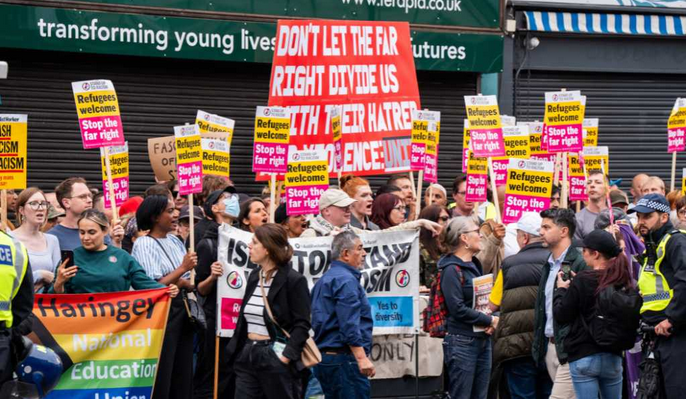
In the future students will study post war history they'll wonder what the fuck were we thinking. But I believe there is a light at the end of the tunnel. They will read between all the selfishness, greed and stupidity and learn of the previous struggles against it. I'm minded of Stonewall, Greenpeace, Martin Luther King and the liberation movement: As for Generation X? Well we won't live to see the promised land but a change has got to come.
Generation Z doesn’t have the luxury of denial or nostalgia. And Generation Alpha will build on the successes of Generation Z because (a) they have no ties to the toxicity of the previous generations (2) they have to. Their future must be forged not on the ruins of the past, but through the deliberate dismantling of what no longer serves humanity or the planet and regeneration through need and ability to justice, equality, ecology and joint enterprise.
The world has gone mad. If you enjoyed reading this, please feel free to look at the rest of the blogs on www.TetleysTLDR.com. They're free to view, there's no paywall, they aren't monetised and I won't ask you to buy me a coffee. Also please free to share anything you find of interest, we only get the message out if people are aware of it. Just a leftie, standing in front of another leftie, asking to be read. All the best, Tetley
